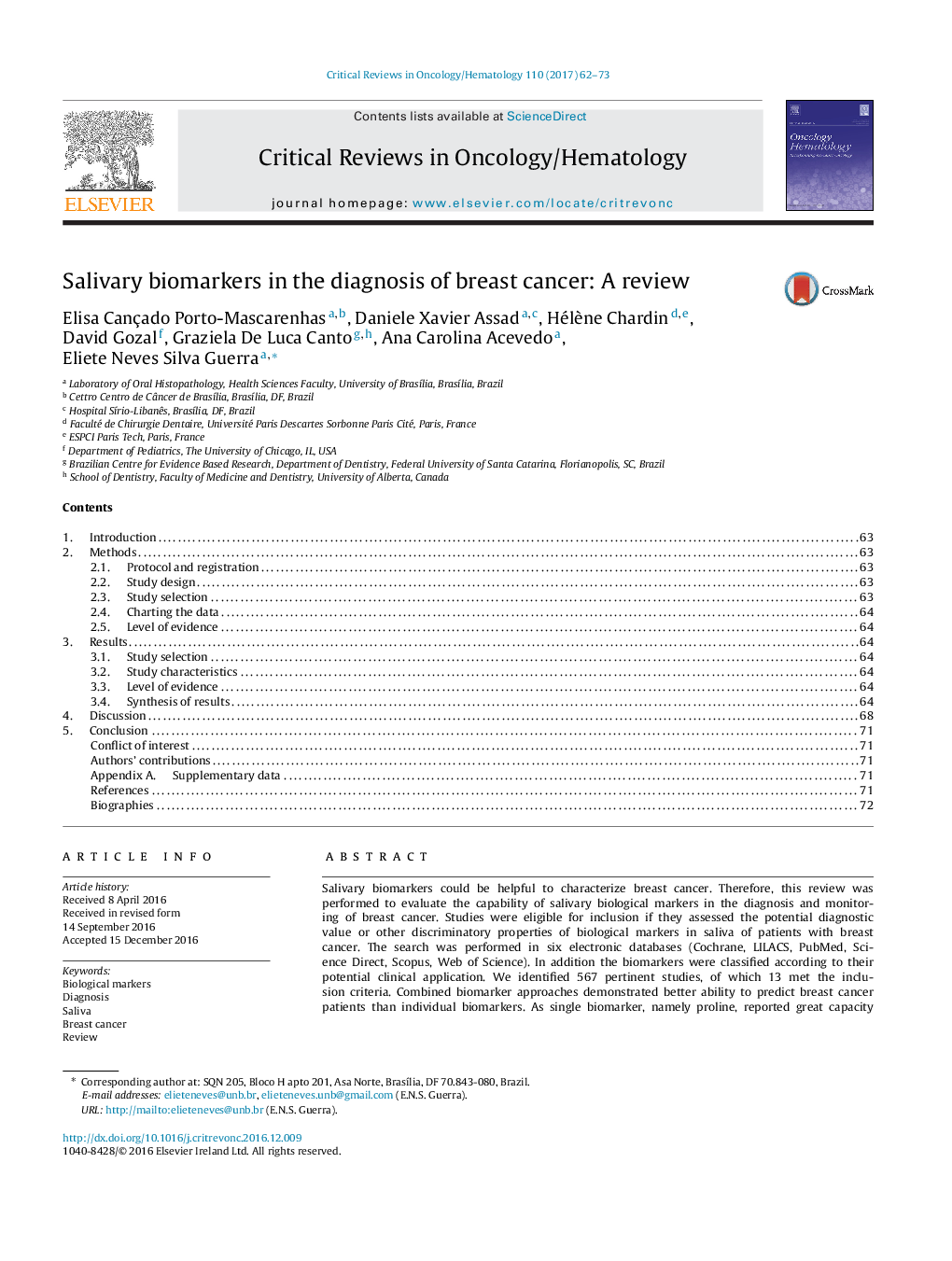| کد مقاله | کد نشریه | سال انتشار | مقاله انگلیسی | نسخه تمام متن |
|---|---|---|---|---|
| 5664159 | 1590707 | 2017 | 12 صفحه PDF | دانلود رایگان |
- This review suggests the potential of salivary biomarkers in the assessment of breast cancer.
- Combined biomarkers demonstrated improved accuracy than those tested individually.
- The combining of CSTAÂ +Â TPT1Â +Â IGF2BP1Â +Â GRM1Â +Â GRIK1Â +Â H6PDÂ +Â MDM4Â +Â S100A8Â +Â CA6 presented the highest accuracy.
- Proline and Valine may also be promising single biomarkers for future studies.
Salivary biomarkers could be helpful to characterize breast cancer. Therefore, this review was performed to evaluate the capability of salivary biological markers in the diagnosis and monitoring of breast cancer. Studies were eligible for inclusion if they assessed the potential diagnostic value or other discriminatory properties of biological markers in saliva of patients with breast cancer. The search was performed in six electronic databases (Cochrane, LILACS, PubMed, Science Direct, Scopus, Web of Science). In addition the biomarkers were classified according to their potential clinical application. We identified 567 pertinent studies, of which 13 met the inclusion criteria. Combined biomarker approaches demonstrated better ability to predict breast cancer patients than individual biomarkers. As single biomarker, namely proline, reported great capacity in both early and late stage breast cancer diagnosis. Taurine showed interesting capability to identify early breast cancer individuals. Furthermore, valine also demonstrated excellent diagnostic test accuracy for advanced stages of breast cancer. Only seven studies reported sensitivity and specificity (Zhang et al., 2010; Streckfus et al., 2000a; Brooks et al., 2008; Cheng et al., 2015; Bigler et al., 2002; Zhong et al., 2016; Streckfus, 2009), which varied considerably from 50% to 100%, and from 51% to 97%, respectively. In general, salivary biomarkers identified advanced stages of breast cancer better than early stages. There is currently limited evidence to confirm the putative implementation of salivary biomarkers as diagnostic tools for breast cancer. However, current review provides new research directions.
Journal: Critical Reviews in Oncology/Hematology - Volume 110, February 2017, Pages 62-73
